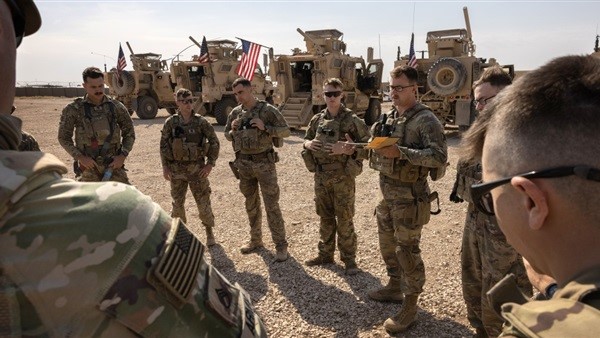Nahla Abdelmonem
The US issued its annual report on terrorism in early March 2023.
It said in the report that the events of 9/11 were a major driver for developing deterrent strategies to undermine violent extremism in it.
The US also recognized the importance of studying the various dimensions of terrorism internationally to be able to deal with this file.
Terrorist threats have evolved significantly over recent years and have diversified to include violent attacks, lone-wolf operations, cyber-security and other threats that harm the national security of countries.
Meanwhile, the report drew attention to the expansion of geographical scope of terrorism.
Global trends
The attacks carried out by al-Qaeda in September 2001 on the World Trade Centre left 2,996 people dead and thousands of others injured.
They constituted a major turning point in the history of Takfiri movements, as well as in international security priorities.
With the famous speech of the founder of ISIS, Abu Bakr al-Baghdadi, in 2014 and the wish to declare the so-called caliphate on the territory of Syria and Iraq, it became clear that terrorism as a crisis needs international solidarity because it threatens everyone and not just its geographical areas of influence.
The American report indicates that Africa has been widely affected by terrorist threats over the past few years, despite international efforts to undermine terrorism.
ISIS has managed to carry out effective attacks through its branches in Chad; Nigeria; Niger, and Cameroon.
These attacks caused exhaustion the region’s resources.
Al-Qaeda has been able to threaten the Horn of Africa region through its branch in Somalia, known as al-Shabaab, in addition to threatening the security of Mali with the Nusra Front group of Islam and Muslims.
Al-Qaeda’s threats are expanding in the African coast and in the Ivory Coast, Ghana, Benin, Togo and the entire Arabian Peninsula.
Afghanistan continues to pose a security threat due to the activities of terrorist groups inside it, as ISIS, al-Qaeda and others have maintained active branches in the region, despite efforts to undermine extremism in Afghanistan and its surroundings.
US counterterrorism efforts
The US has used its recent report to market its efforts in the field of combating terrorism and prosecuting extremist groups.
It pointed to decisions to classify terrorists on its own regulations as a tool to prosecute them, as well as projects to combat violent extremism in Africa, such as the African Focus Group, known in short as AFFG.
On the paths of the American role in the fight against terrorism, and what it may carry of realism or propaganda, Said Sadek, a professor of political sociology at the American University in Cairo, said the government was able to kill Baghdadi and undermine ISIS in Syria and Iraq.
It also formed, he said, an international coalition to fight ISIS under its leadership.
However, the role of the coalition remains mixed, Sadek told The Reference.
He pointed out that Washington faces terrorism on one hand, and sponsors authoritarian regimes in different regions and allows the violation of human rights as long as it preserves its interests, on the other.
“This shows that terrorism is a tool of tyranny internationally,” Sadek said.
He added that the US government, for example, harbours some extremists to use them as opposition tools to pressure governments to pass their interests.








































admin in: How the Muslim Brotherhood betrayed Saudi Arabia?
Great article with insight ...
https://www.viagrapascherfr.com/achat-sildenafil-pfizer-tarif/ in: Cross-region cooperation between anti-terrorism agencies needed
Hello there, just became aware of your blog through Google, and found ...